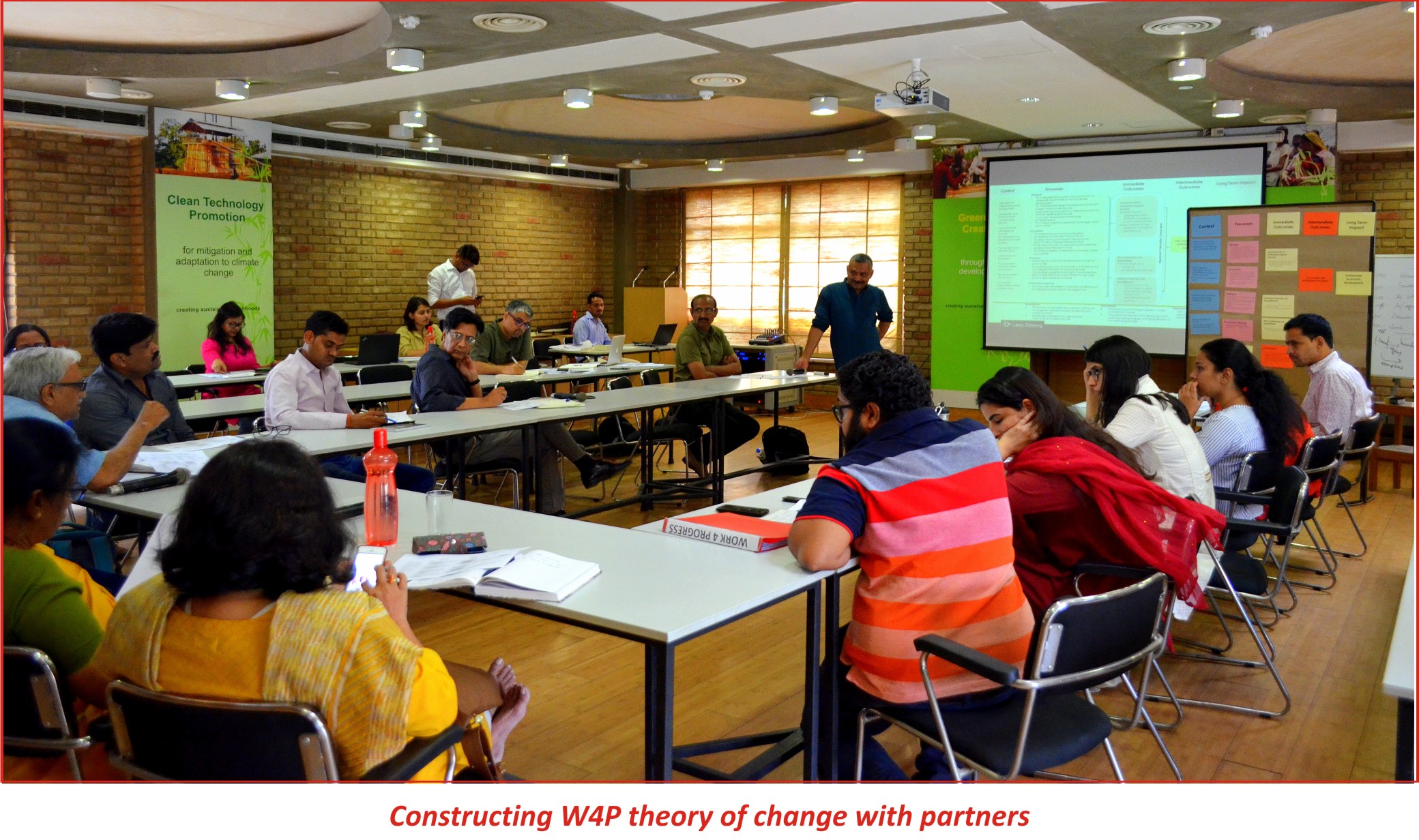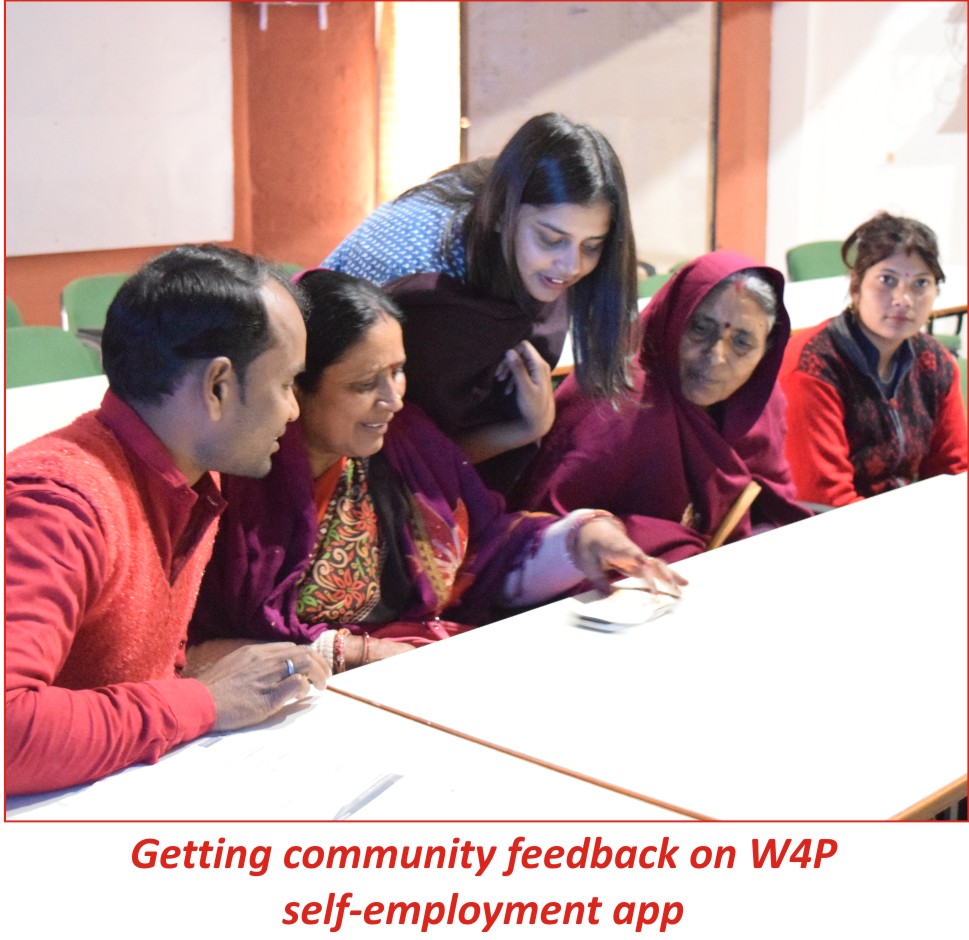Social Innovation -
Evaluating Complex Systems
In
recent years, there has been a shift in development programming from linear
models to more integrated approaches that take into account social, economic
and political aspects. An interesting trend arising from this shift has been
the rapid increase in the creation of social innovation labs in both
developing and developed country contexts.
Social innovation tackles the ‘wicked’ problems of development, which have been defined in the Harvard Business Review as social or cultural problems that are difficult to solve due to incomplete and contradictory knowledge systems and their interconnected nature. For instance, poverty is linked with education, nutrition with poverty and economy with skills. A social innovation approach establishes novel ways to use current resources, create new networks, relationships and systems that untangle the web of wicked problems, bringing coherence to a complex world.
One such approach is to instate a complexity aware approach to monitoring, evaluation and learning throughout a programme life cycle. Traditional approaches to evaluation involves assessing specific effects of a defined programme according to a set of pre-determined outcomes. While this is necessary to achieve programmatic outcomes, evaluation needs to accommodate the evolving and unpredictable nature of complex systems. There is a need therefore to design evaluations that are mindful of contextual factors as well as flexible, iterative and responsive to changing dynamics within interventions. Evaluation and learning thus need to be embedded into the intervention strategy.
Employing such an approach need not mean a complete departure from existing tools and techniques. Rather, it is more about adaptation of these tools to reflect the complexities of the intervention spaces. For example, interviews can explore the role of context instead of limiting findings to align with an intervention outcome. Interviews when deployed with an innovative lens can provide deeper insights and capture hidden narratives. For instance, they can be framed as a conversation and supplemented with observations and other information sources at different scales of change in the ecosystem. This may include identifying relevant stakeholders, understanding factors that can effect desired change, tracking dynamic interrelationships, analysing external shocks and implementing learnings. Through a system of innovative application and real-time and responsive programme management, monitoring and evaluation can shift from a costly responsibility to an essential programme management strategy.

The following section shares aspects of the evaluation system being followed by Work 4 Progress (W4P) programme, that adopts social innovation for entrepreneurship led job creation in rural India.
An Integrated Learning System for Work 4 Progress (W4P)
The goals of evaluating W4P are around establishing and embedding adaptive programme management, cognizant and responsive to significant changes occurring in the system. For carrying this out, W4P has adopted Developmental Evaluation.
Developmental evaluation is a process of analysis, dialogue and reflection which aims to enable W4P to understand platform accomplishments as well as enablers or barriers to the desired change. The process helps in learning which current strategies work and develop new approaches to adapt changing conditions in the platform. The goal for developmental evaluation is to generate the most useful insights through a realistic and reasonable investment of time, money and people.
On the basis of the development evaluation framework, W4P India has adopted a new learning system for the current phase. The system is anchored by three members of W4P India who will facilitate strategy planning discussions with platform members, adaptive programme management, collective learnings, external good practices and knowledge building.
The new system will guide the process of data
collection, analysis and feedback by employing simple evaluation tools.
These evaluation tools have been designed to systematically document
findings on key evaluation areas and adapt them for learning. The design
allows the translation of developmental evaluation tools to field
activities, and findings into knowledge. The knowledge is then communicated
within the community and integrated back in the dialogue and co-creation
processes. The learning system is being designed in a manner that the
community becomes a central part of its process. For this, W4P is exploring
the potential of community radios and infotainment sessions.

Over the next few months, the integrated learning system of W4P will:
-
Apply evaluation tools as learning tools through facilitated sessions in an open learning environment.
-
Identify needs, opportunities, enablers and barriers based on concrete evidence and analysis of breakthrough learnings from the field, studies or reviews.
-
Focus on documenting narratives that emerge during dialogue sessions and often tend to be overlooked.
-
Employ ethnographic principles for regular, deep feedback from the field, through voice notes, video clippings, pictures, initiating and embedding reflective thinking within the team.
-
In addition to internal programme learnings, focus on external learnings and good practices that can be adapted to the India programme.
The platform is working on embedding the plan
for developmental evaluation in the implementation work plan for
strengthening the learning component of the W4P India platform.
■
References:
-
Open Innovation Platforms for Sustainable Development, UNDP and la Caixa Banking Foundation
-
Considerations for Monitoring, Evaluation and Learning in Social Innovation Platforms, JOSHUA FISHER, Columbia University
-
Evaluating complex social initiatives, Stanford social innovation review
Vrinda Chopra and Stuti
Sareen
vrinda87@gmail.com and ssareen@devalt.org